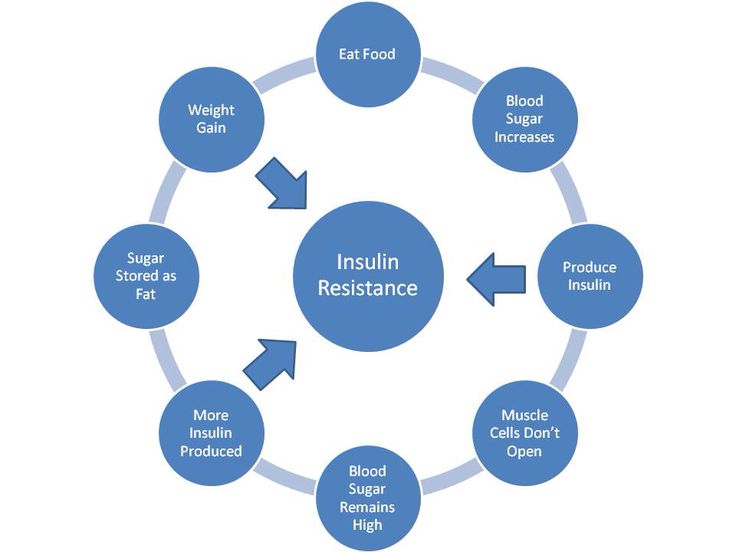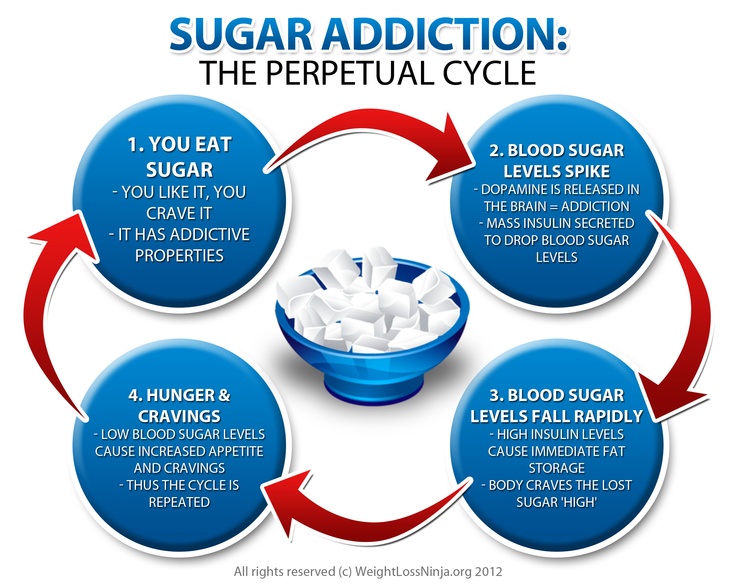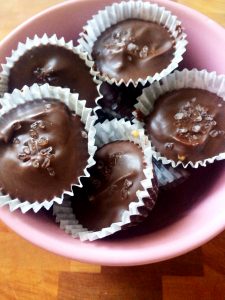Learn why you should ditch the heart-shaped candies this year, and get inspired with one of our healthier chocolate treat recipes to make this your sweetest Valentine's Day, yet!

Ah, Valentine’s Day! For adults, it’s known for boxes of chocolate, chocolate roses, and an excuse to shower your loved ones with sweet treats in the shape of a heart. For our kids, it’s known for tart conversation hearts and the assortment of candies that come attached to those adorable cartoon valentine cards. There’s probably a red velvet cheesecake, chocolate covered strawberries or another rich dessert in your near future, coupled with a glass (or two) of red wine. After all, what better way to say “I love you” than enjoying some of these satisfyingly-sweet indulgences with your loved ones?
We want to share with you that there is, in fact, a better way to say “I love you!” Nix some of the sweet stuff, and your life will, actually, be much more sweet.
“How could my life be MORE sweet without these delicious treats!?” you ask?
It’s delicious, yes, but sugar is the cornerstone to myriad of health issues like weight gain, irritability, insomnia, acne, brain fog, digestive issues and even chronic diseases such as obesity, hypertension, heart disease and diabetes.
Sugar is a toxin that interferes with our body’s ability to function optimally.

In fact, we’ve included some healthier Valentine’s treats at the end of this post that you can make at home to still enjoy the sweet stuff without overdoing it on refined, processed sugar!
Go ahead and enjoy a chocolate or two when your sweetheart gifts them to you, we just want you to be more mindful of overdoing it on this dangerous toxin that lurks not only during this holiday, but sadly, in a majority of our everyday foods, too.
So what’s the big fuss all about, anyway?
When you eat sugar, it kicks up your body’s insulin production. Insulin is a hormone responsible for regulating blood sugar, and it is released into the blood stream when you consume sugar or sugary foods like refined carbs, bread, white rice, cookies, etc. Its role is to convert this sugar into energy and return your blood glucose (sugar) levels to normal. Insulin drops immediately after this process takes place, and isn’t released again until the next time you eat something sugary. Insulin allows sugar to enter your cells where it is used as fuel.
However, when you constantly eat a diet high in sugar and sugary foods, insulin is always being pumped into your blood stream to help bring your glucose levels down. Over time, your body develops insulin resistance, or the inability to respond normally to insulin. This is diabetes, where your blood glucose levels remain high and you gain weight. Why?
Your body converts the glucose it needs into energy, but when there is still a lot of it remaining on a consistent, daily basis (through your poor dietary choices) and insulin can’t do its job, the rest is stored as…you guessed it…fat. Not to mention, you will usually then feel tired and hungry as this cycle continues to repeat itself.

Sugar in your blood stimulates immune cells to release inflammatory molecules. Inflammation is essentially your body’s immune response to any foreign irritant. Some inflammation is healthy, like when you fall and scrape your knee and the white blood cells come rushing to the site to swell, heal and repair your tissues. Other inflammation, like the low-level, chronic inflammation that happens internally when we eat unhealthy foods, smoke, drink alcohol, etc. is the kind to watch out for. This kind of inflammation causes damage and irritation to our cells and tissues, and can contribute to a whole array of health issues from heart disease, to arthritis, to cancer, and Alzheimer’s. It stops your body from functioning optimally, makes you feel lousy, can cause aches and pains, and even destruct your hormones and thyroid function.

Sugar messes with our appetite hormones, leptin and ghrelin. Leptin is responsible for telling us when we are full and satiated, and when we have had enough calories from our food. Ghrelin, on the other hand, triggers the feeling that we are hungry and want more. When we eat higher amounts of sugar, it actually interferes with the ability for these hormones to be released from the brain properly—leptin is subdued, and ghrelin increases. We crave more and more food despite the fact that we may actually be full or have received enough energy. So, what happens? We overeat. Not only does this make most of us feel bloated and lethargic, but it can also lead to weight gain and other health issues.
Quite literally. When you eat sugar, your brain releases dopamine, which activates your brain’s reward center. You feel happier, joyful, excited even. When sugary foods are eaten in higher quantities, and over a longer period of time, these dopamine receptors start to weaken. This means that the next time we eat these sugary foods, the effect is blunted, so we start to crave more and more of the junk to get the same level of reward. The more we eat, the more we crave, and so we eat more, gain weight, and are pre-disposed to inflammation and chronic diseases. It’s a vicious cycle and one that is hard (but possible!) to break.

The best way to approach this subject is to enjoy sugar in extreme moderation. When you’re preparing foods at home or choosing sweetened products, opt for natural sugars such as pure maple syrup or raw honey, or even pure stevia extract which doesn’t contain any sugar at all, but is a natural sweetening agent.
It’s true that sugar is sugar, no matter the form, and it’s all going to act a similar way inside your body. For that reason alone, we urge you to watch your sugar intake overall. However, we would argue that if you’re going to indulge in a bit of the sweet stuff, make it one from nature: your body would rather digest and process a natural form of sugar as opposed to one that is highly refined and produced in a laboratory (high fructose corn syrup, anyone?)
Read the label on your candy hearts and box of chocolates this Valentine’s Day. You’ll likely find a list of corn syrups, artificial flavors and colors, cane sugar, and preservatives. These are harming your gut health, adding to your toxic load, and contributing to the issues we outlined above.


Yuck!
Try making one of our homemade desserts this Valentine’s Day, and indulge in a natural treat with half the sugar content than your typical store-bought candies and cakes.
Free from dairy & refined-sugar | Yield: 12

Ingredients:
To Make:
** Nutritional Highlights **
Free from dairy & refined-sugar | Yield: 10 mini chocolates

Ingredients:
To Make:
** Nutritional Highlights **
P.S. if you’re hooked on the sweet stuff and need some help ditching the sugar cravings, get in touch with our Wellness Coach today. She’s ready to help you with all the tricks and tools you need to life a seriously-sweet life, free from sugar. No deprivation required!
Share this post and share the love!

Kaley Moore is the Wellness Coach at Integrative Wellness Centers, The Top-Rated Naturopathic & Functional Medicine Doctors in Michigan. She holds her BA in Interdisciplinary Health Studies from Michigan State University and is a certified Integrative Nutrition Health Coach. She is driven by the mission to help you restore meaningful health and wellness. Having suffered with multiple health conditions from a young age, Kaley has learned first-hand how our food choices affect so much more than what goes on our plate. Coupled with lifestyle management and a simplified approach to nutrition, she brings her 10+ years of experience working closely with individuals and families to offer a holistic perspective in living a balanced, nourished life.

Take the online digestive evaluation to instantly discover what systems of your body are the cause of your health issues.
Online Digestive EvaluationTake the TestOnline Female Hormone EvaluationOnline Male Hormone Evaluation